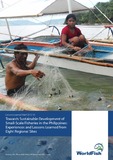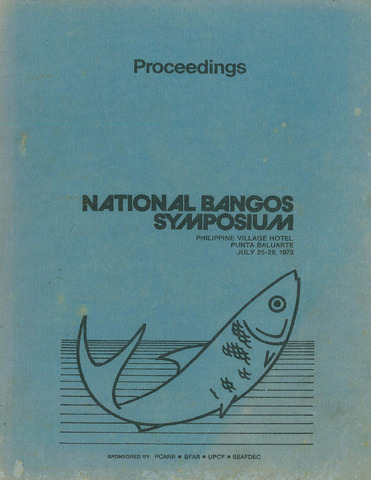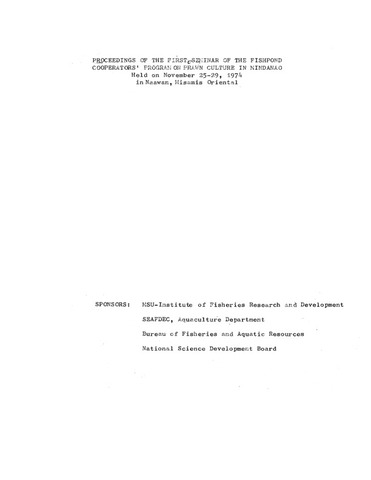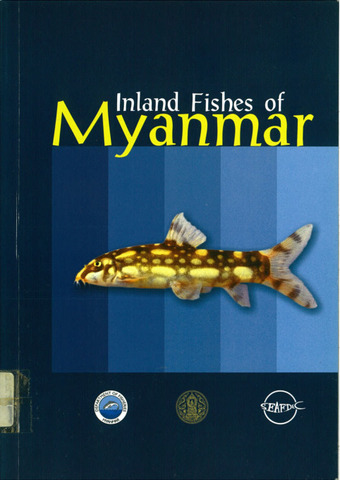Towards sustainable development of small-scale fisheries in the Philippines: Experience and lessons learned from eight regional sites
Share
Abstract
The focus of this paper is on the governance of small-scale or municipal fisheries in the Philippines in light of the critical role they play in the livelihoods of coastal communities and in the nation as a whole. Annually, some 1.3 million metric tons of fish are harvested from the country’s 17,460 km coastline and 496,000 ha of inland water bodies. This sub-sector contributes significantly to the Philippine economy, supplies the bulk of the dietary fish requirement for over 90 million Filipinos who consume around 38 kg/capita/year, and provides direct employment to 1.4 million fishers.
Despite eight national fisheries plans from 1972 to 2010, four major externally funded fisheries programs and thousands of local initiatives, the failures and inadequacies in governance of small-scale fisheries are conspicuous. They are made evident by depleted fishery resources, degraded fish habitats, intensified resource use competition and conflict, post-harvest losses, limited institutional capabilities, inadequate and inconsistent fisheries policies, and weak institutional partnerships.
Although there are suitable governance arrangements in place, there needs to be better clarification of management functions between and among the various bodies at different administrative levels. Up-scaling small-scale fisheries management and expanding institutional partnerships would be beneficial. Six ‘core’ strategies are proposed to help promote the sustainability of small-scale fisheries: (1) sustain—conservation and rational use of fishery resources; (2) protect—preventive steps to manage threats to habitats and/or ecosystems that support fisheries; (3) develop—development of small-scale fisheries in geographically-appropriate areas, including promotion of livelihoods; (4) capacitate—enhancing the capacity of municipal fishers and relevant stakeholders; (5) institutionalize—organizational integration including scaling-up of fisheries management; and (6) communicate—generation of pertinent information and translation into appropriate formats for practical transmission.
In pursuit of multiple objectives, the governance of small-scale fisheries will continue to be a delicate balancing act. However, it will be the more judicious allocation of administrative resources by local government units to small-scale fisheries, as well as the continuing support of national government agencies and civil society groups, that will be most critical over the longer term.
Suggested Citation
Perez, M. L., Pido, M. D., & Salayo, N. D. (2012). Towards sustainable development of small-scale fisheries in the Philippines: Experience and lessons learned from eight regional sites (Lessons Learned Brief 2012-10). Penang, Malaysia: WorldFish.
Subject
Collections
Related items
Showing items related by title, author, creator and subject.
-
Proceedings of the National Bangos Symposium, Philippine Village Hotel, Punta Baluarte, July 25-28 1975
Philippine Council for Agriculture and Resources Research (PCARR); Bureau of Fisheries and Aquatic Resources; University of the Philippines College of Fisheries; Southeast Asian Fisheries Development Center, Aquaculture Department (1975) -
Proceedings of the First Seminar of the Fishpond Cooperators' Program on Prawn Culture in Mindanao held on November 25-29, 1974 in Naawan, Misamis Oriental
MSU-Institute of Fisheries Research and Development; Southeast Asian Fisheries Development Center, Aquaculture Department; Bureau of Fisheries and Aquatic Resources; National Science Development Board (1974) -
Inland fishes of Myanmar
Vidthayanon, Chavalit; Termvidchakorn, Apichart; Pe, Myint (Secretariat, Southeast Asian Fisheries Development Center, 2005-12)This handbook of some inland fishes in Myanmar was based on a rapid field survey of SEAFDEC supported team and long term observation of the authors on common species and some taxa, obtained from the aquarium trade. We ...





